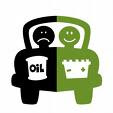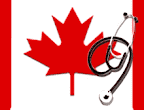
Study points-out emission problem
Pollution spewing from vehicle tailpipes kills about 440 people in Toronto and costs the city's economy $2.2-billion every year, according to a new study from the city's Public Health Unit. One critic says that the study falsely suggests our air is poisonous.
Dr. David McKeown, Toronto's medical officer of health, hailed the study as the first of its kind in Canada to tabulate the number of people killed by vehicle-borne pollution and to estimate the number of lives that could be saved if people drove less.
The report, "Air Pollution Burden of Illness from Traffic in Toronto", concludes a 10% reduction in traffic-related pollutants such as carbon monoxide and nitrogen dioxide would prevent 63 premature deaths in the city every year.
A 20% cut would save 126 lives, while a 30% cut would save 189, the report says.
"The picture is definitely not getting better," Dr. McKeown told a news conference at City Hall yesterday.
"And we would expect that if we continue to see an increase in the use of cars in the city, that the picture of air will get worse."
The back of the 57-page report lays out steps the city is taking to pry people out of their cars.
The report highlights the city's climate-change plan and the sustainable transportation blueprint adopted by city council last month, while suggesting other ways the city could do better.
Dr. Ross McKitrick, an associate professor of environmental economics at the University of Guelph, said he was bothered by the list of policy prescriptions included in the study.
"To some extent I feel like that was the stuff they really wanted to push; that there's all these policy changes they'd like to advocate for and the beginning sections were kind of filler to motivate that," he said.
"I'm a bit worried when you have a report that looks like a set of policy conclusions in search of a rationale."
Dr. McKitrick, a frequent critic of the methodology governments use to estimate pollution-related deaths, also questioned how Toronto Public Health could prove that car pollution kills more than 400 people annually.
"These are statistical coefficients. There would be no way of connecting this to actual people," he said.
Dr. McKeown, however, defended TPH's methodology.
"I'm often asked with these numbers, show me the person who's in the morgue, in the hospital, who died as a result of air pollution," he said.
"The reason we know that there's a strong relationship between quality of our air and the pollutants that are in our air and our health is because we can see that on bad air days more people have symptoms, more people go to the doctor, more people go to the emergency room, more people are admitted to hospital and more people die."
Dr. McKeown also said the annual cost of traffic-related pollution deaths to the economy trumpeted in the study -- $2.2-billion or $5-million per premature death -- was based on widely accepted practice.
"There's nothing particularly innovative about the costing part of this model. It's a fairly standard technique," he said.
The study's conclusions raised questions about whether road tolls or congestion charges should be implemented to nudge more people on to public transit.
Gary Welsh, the city's general manager of Transportation Services, reiterated the city's line that tolls would only be acceptable if installed and co-ordinated across the Greater Toronto Area.
"You just can't slap tolls on the Don Valley and the Gardiner," he said. "You've really got to look at the whole Toronto area to determine how you best could implement tolls, if implement them at all."
By the numbers:Air Pollution Burden of Illness from Traffic in Toronto report says:
- Number of premature deaths caused by traffic-related pollution in Toronto every year: 440
- Number of hospitalizations caused by traffic-related pollution in Toronto every year: 1,700
- Number of acute bronchitis episodes experienced by children annually as a result of traffic-related pollution: 1,200
- Cost to the economy of traffic-related pollution deaths every year: $2.2-billion
- Number of lives that could be saved every year if Toronto reduced its motor-vehicle emissions by 30%: 189
- Amount that could be saved every year if Toronto reduced its motor-vehicle emissions by 30%: $900-million
Coming from a little country called The Netherlands (btw it's only one country) I know for a fact that toll and such DON'T solve the pollution problem, neither will it prevent traffic-jams from happening.
A few solutions that I think will work:
1. Raise taxes on 6, 8 and 12 cylinder cars in the GTA. It's ridiculous to drive anything bigger than a 4 cylinder car.
In almost 100% of all cases it's totally unnecessary if you're not a contractor or a school bus driver.
After all: we don't have any high mountains and a lot of off-road terrain where we need 4x4-s to get to work!
2. Extension of office hours which will reduce congestions at specific times of the day. We have a 24-hour economy but most companies don't seem to understand that. Work more in shifts rather than all come and leave at the same time. It's also in the best interest of the consumer and ultimately the company.
3. Work more from home. A lot of positions nowadays don't require anyone to be physically present anymore. With all the technology on our hands, i.e. email; messaging, cells, conference calling, etc. it shouldn't be a problem at all!
4. Subsidize clean and green cars, i.e. hybrids, more than so far has been done.
The choice is not confined to only (I think ugly) Toyota Prius'. There are more flashy hybrid models available nowadays!
5. Penalize left lane-drivers. I think they're the greatest cause of traffic-jams, not to mention the frustration and accidents they cause.
 6. Build a railway-station to connect Pearson Airport with the rest of Canada.
6. Build a railway-station to connect Pearson Airport with the rest of Canada.7. Reward carpooling.


No comments:
Post a Comment